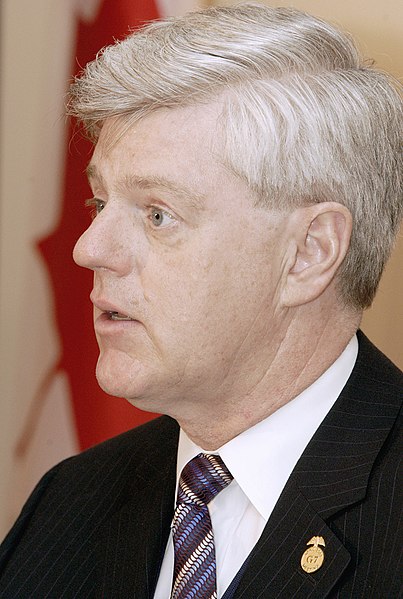Liberal leadership forum turns uglyBefore officially embarking on their Liberal leadership campaigns, Michael Ignatieff and Bob Rae
promised to keep their campaign civil.

"We've talked about the importance of civility, talked about the importance of people working together, talked about the importance of how we build the party, talked about the importance of how we make sure that we can defeat the Conservatives," Rae previously said.
Ignatieff has even mused that he's more interested in running his campaign against the governing Conservative party than against his fellow leaders.
Now, with news of the unpleasantness ensuing at the first forum of the leadership campaign, a great many Liberals should be asking themselves what happened.
It seems the first problem arose with
some confusion over whether or not the media would be allowed access to the debate.
Bob Rae insisted that he wouldn't attend under those grounds.
"It sends an awful signal to have a debate that is closed to the media, closed to Canadians," Rae insisted. "I am calling for open debates, and I think we have to start right now, this weekend."
Furthermore, the news release accused Michael Ignatieff's campaign of barring media presence from the debate, something that Ignatieff himself claims to know little about. Instead, he insists it's the Liberal party behind the move.

"I don't make the rules. The party makes the rules. I show up and do what the party tells me to do," Ignatieff insisted. "The party wants to have a family discussion and that's what we're going to do this afternoon."
Ignatieff further insisted that all three campaigns had agreed to the rule. Rae clearly disagrees. "What we agreed to is that we would come. The idea that it would be closed is news to me," he insisted. "You can't have a town hall without a town."
On that note, Rae has clearly drawn first blood in this campaign. After all, Liberals from across the country will be sending delegates to vote in Vancouver for the next Liberal leader. Thus, it isn't at all unreasonable to insist that Liberals across the country have a right to know what's being discussed in each and every leadership forum, and have a right to know about the positions being taken by each and every candidate (all three of them to date).
Perhaps the big winner is Dominic LeBlanc. While Rae and Ignatieff trade shots over who's making the rules and how, LeBlanc is choosing to try to stand above the entire mass.
"The game hasn't even started and they're at each other's throats," LeBlanc said.
But at the same time, such comments may undermine LeBlanc's standing as a serious contender. LeBlanc's apparent disinterest in the nature of the rules betrays a recognition that they may mean very little to his campaign: one way or the other, either Miachel Ignatieff or Bob Rae will lead the Liberals into a future election, and LeBlanc will be a kingmaker at best.

For his own part, LeBlanc echoes Ignatieff's narrative that each candidate's opponent in this campaign should be Stephen Harper. "I believe that for the sake of the Liberal Party this leadership process should proceed in a civil way where the opponent is Stephen Harper, and the opponents aren't other Liberals," LeBlanc insisted.
But once again, many Liberals will likely choose to take issue with the notion that external policy differences are more important than internal ones when discucssing the Liberal leadership -- particularly in a party with as stark a left/right divide as the Liberals.
With no media access to the debates, accusations flying over who's making the rules and why, and suggestions by two candidates that internal policy differences are largely off-limits, many Liberals may be questioning whether this leadership campaign will turn out any more favourably than the last.
















